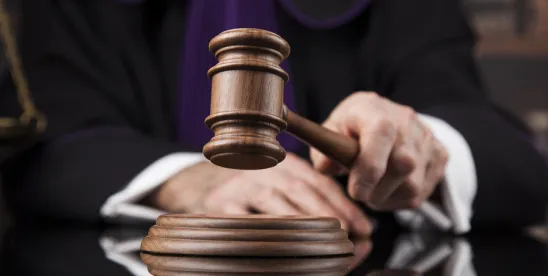Happy Monday TCPAWorld. Here’s one to get the week started off right.
It is not often a Court characterizes the dispute of parties to litigation as “silly.” It is perhaps even rarer for a Court to announce it is “perplexed and confounded” by a Defendant’s motion in connection with discovery.
In Austin v. Public Reputation Mgmt. Servs., Case No. 20-cv-80161, 2020 U.S. Dist. LEXIS 172968 (S.D. Fl. Sept. 22, 2020) we are treated to both.
Apparently the Defendant in a putative TCPA case really wanted to take an expert’s deposition in August, 2020. After unilaterally setting a date that the expert was apparently not available, it refused to move the deposition date prompting a motion for a protective order by the Plaintiff—filed on an emergency basis two days before the deposition was to commence. The Defendant opposed the motion the day after the filing demanding that the deposition go forward. Dropping whatever else it was doing that afternoon, the Court chimed in the same day, allowing the deposition to be moved, but only by a few days and it ultimately ended up proceeding the Saturday following the original date it was set forth.
While that may seem much ado about nothing—the Court characterized the issue as “silly”—it served as a backdrop for a second fight that ultimately resulted in the ruling in Austin.
Apparently in the scramble to prepare and produce Mr. Woolfson—hey, didn’t he used to testify for defendants?—Plaintiff’s counsel “failed” to produce the records underlying the expert’s reports until a day or two before the deposition went forward. After taking the expert’s deposition on the expedited basis (explained above) the Defendant then complained to the court that they had been prejudiced by plaintiff’s “untimely” production of records.
The Court was not amused.
After pointing out that the Defendant never actually properly demanded the records in a manner that would trigger court intervention—such as via a subpoena—and that a request via email to Plaintiff’s counsel was not actually an enforceable formal discovery demand, the Court determined that Defendant got exactly what it asked for—an early deposition:
For whatever reason, Defendant’s counsel aggressively demanded an immediate deposition of Plaintiffs’ expert, Mr. Woolfson, without taking the time to ensure he would have all of the documents he allegedly needed for that deposition. Defendant got that rapid deposition on August 29, 2020, and now inexplicably complains about it.
Determined to express its angst over the situation, the Court goes on to rip Defendant for failing to reply to the Plaintiff’s opposition to the further deposition—an oversight the court says “speaks volumes”– before ending with the devastating applesauce line all federal litigators dread:
In sum, Defendant’s argument and logic justifying an Order from this Court requiring a second deposition of the expert is, to quote the late Justice Scalia, “pure applesauce.” King v. Burwell, 135 S. Ct. 2480, 2501 (2015) (Scalia, J., dissenting). Simply put, the Court will not bail Defendant out of the predicament that its own counsel caused. The request for two hours of additional deposition time of Mr. Woolfson is meritless. This is now the second silly and wasteful discovery dispute this Court has had to address, and rule upon, in the past 3 weeks in this TCPA case. The next one will result in sanctions to the offending party and counsel.
So, um, yeah.
Take aways here are pretty clear: don’t agitate a federal judge with “silly” discovery motions brought on an emergency basis replete with “applesauce” arguments.
But in seriousness, TCPA litigators—like all federal court litigators—need to keep the rules of civility in mind. Unilaterally setting deposition dates, refusing to cooperate with opposing counsel, requiring emergency motions, not filing reply briefs, etc., are the sort of self-inflicted errors a successful litigant knows to avoid. And while litigation can get contentious at times, keep your cool and don’t assume that the Court is going to see things your way in a spat. More often than not the Court will find a way to punish both sides if they can’t find a way to work together.
Let’s have a good week TCPAWorld.




 />i
/>i

